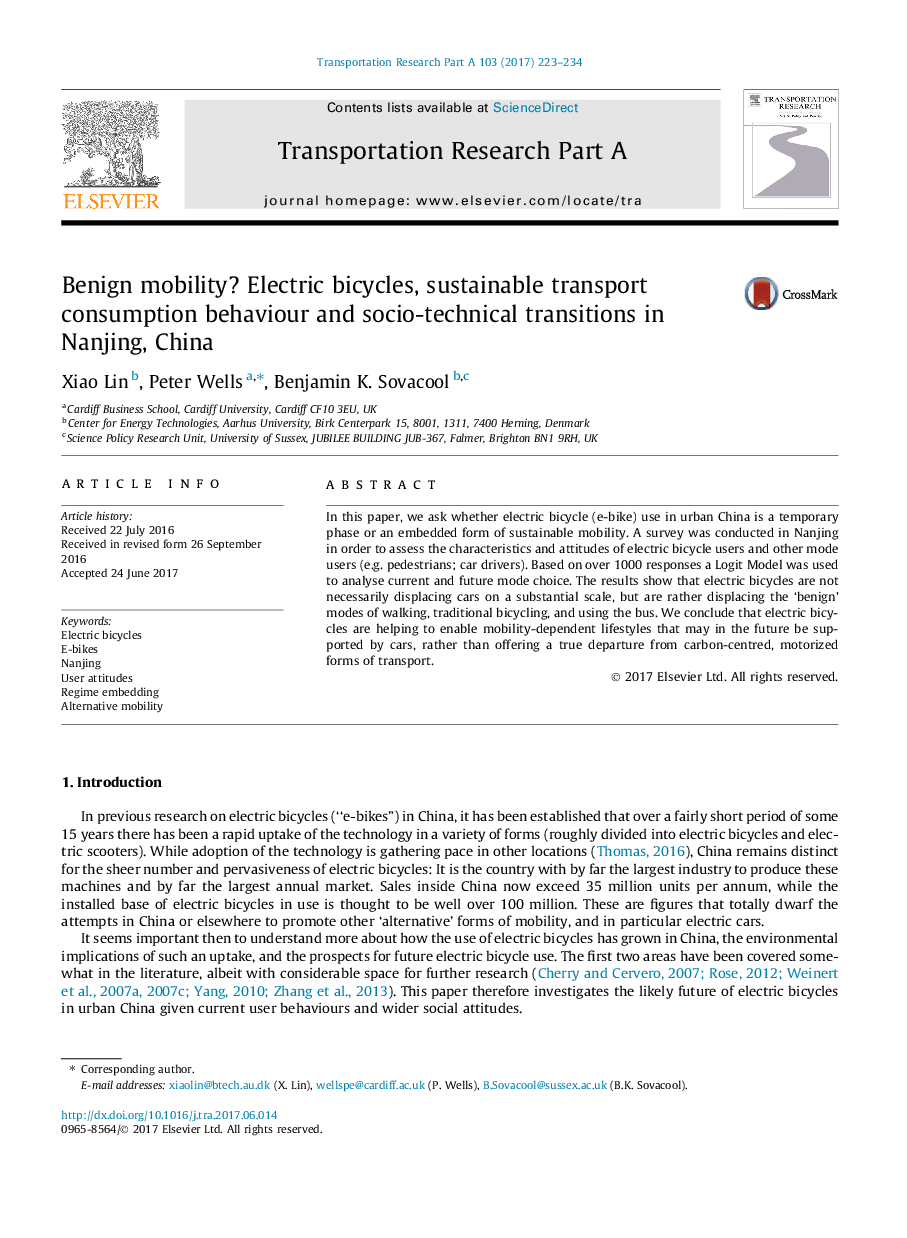| Article ID | Journal | Published Year | Pages | File Type |
|---|---|---|---|---|
| 4928918 | Transportation Research Part A: Policy and Practice | 2017 | 12 Pages |
Abstract
In this paper, we ask whether electric bicycle (e-bike) use in urban China is a temporary phase or an embedded form of sustainable mobility. A survey was conducted in Nanjing in order to assess the characteristics and attitudes of electric bicycle users and other mode users (e.g. pedestrians; car drivers). Based on over 1000 responses a Logit Model was used to analyse current and future mode choice. The results show that electric bicycles are not necessarily displacing cars on a substantial scale, but are rather displacing the 'benign' modes of walking, traditional bicycling, and using the bus. We conclude that electric bicycles are helping to enable mobility-dependent lifestyles that may in the future be supported by cars, rather than offering a true departure from carbon-centred, motorized forms of transport.
Related Topics
Physical Sciences and Engineering
Engineering
Civil and Structural Engineering
Authors
Xiao Lin, Peter Wells, Benjamin K. Sovacool,
